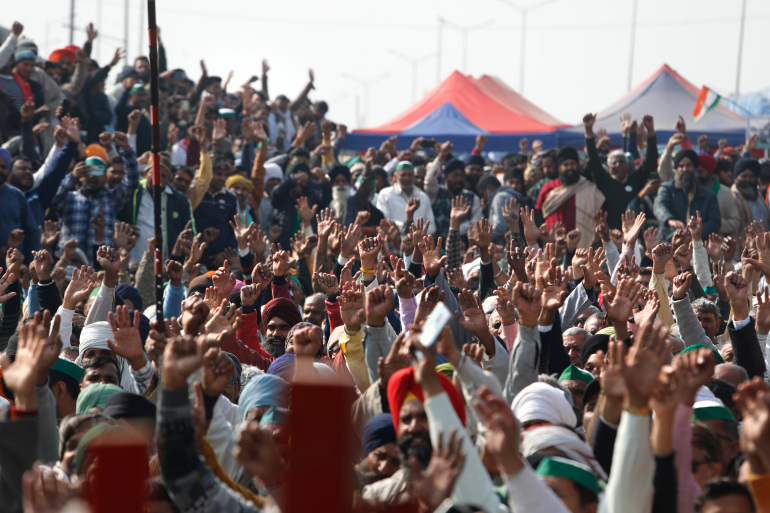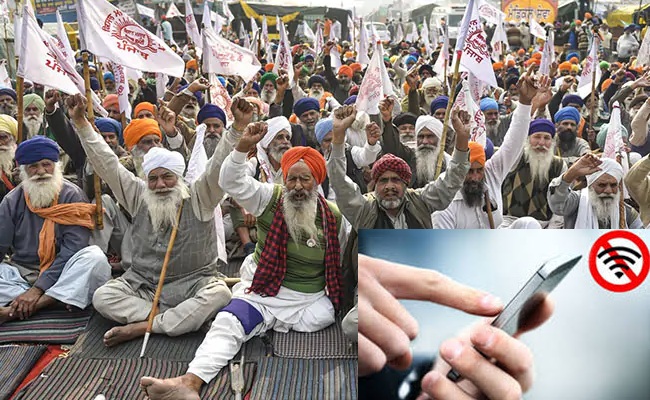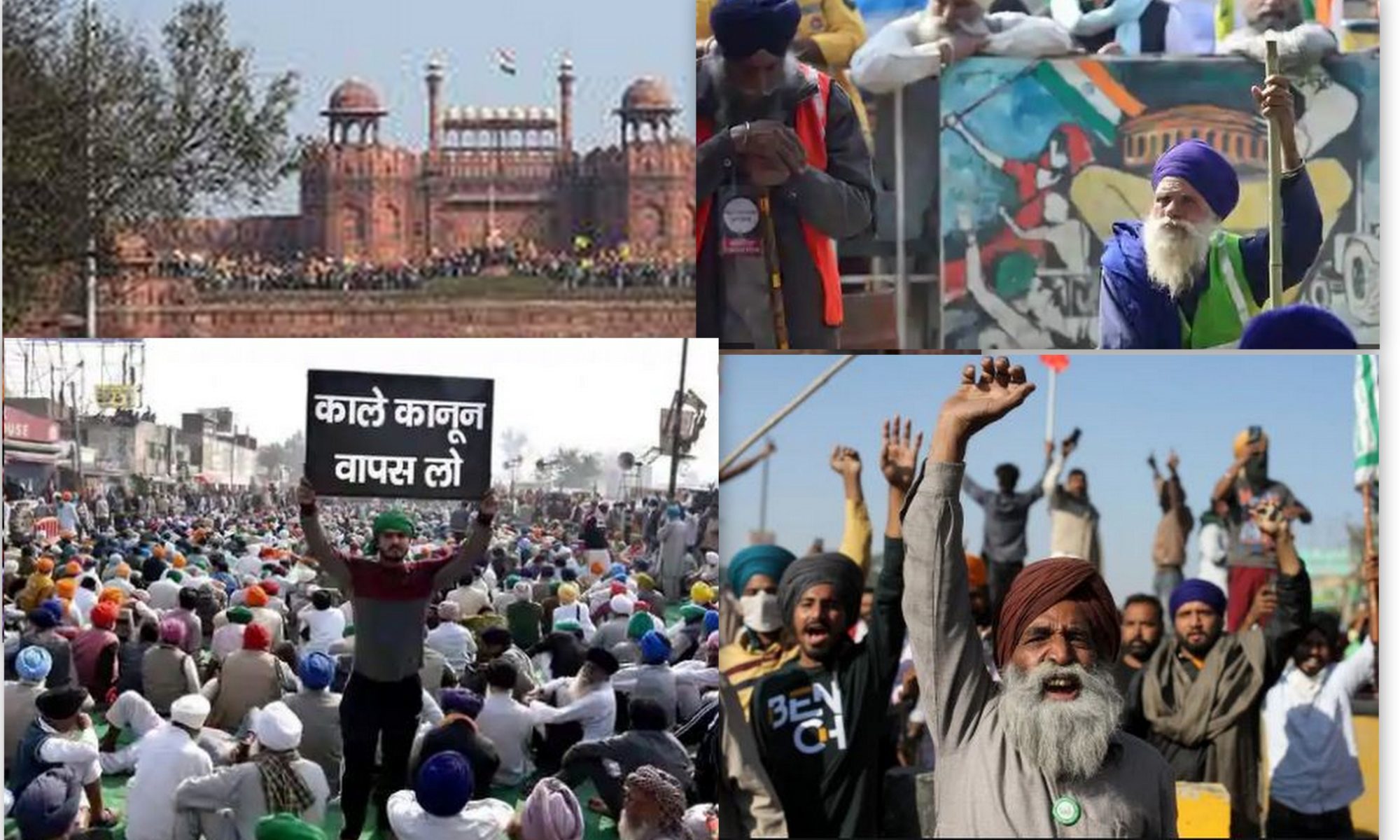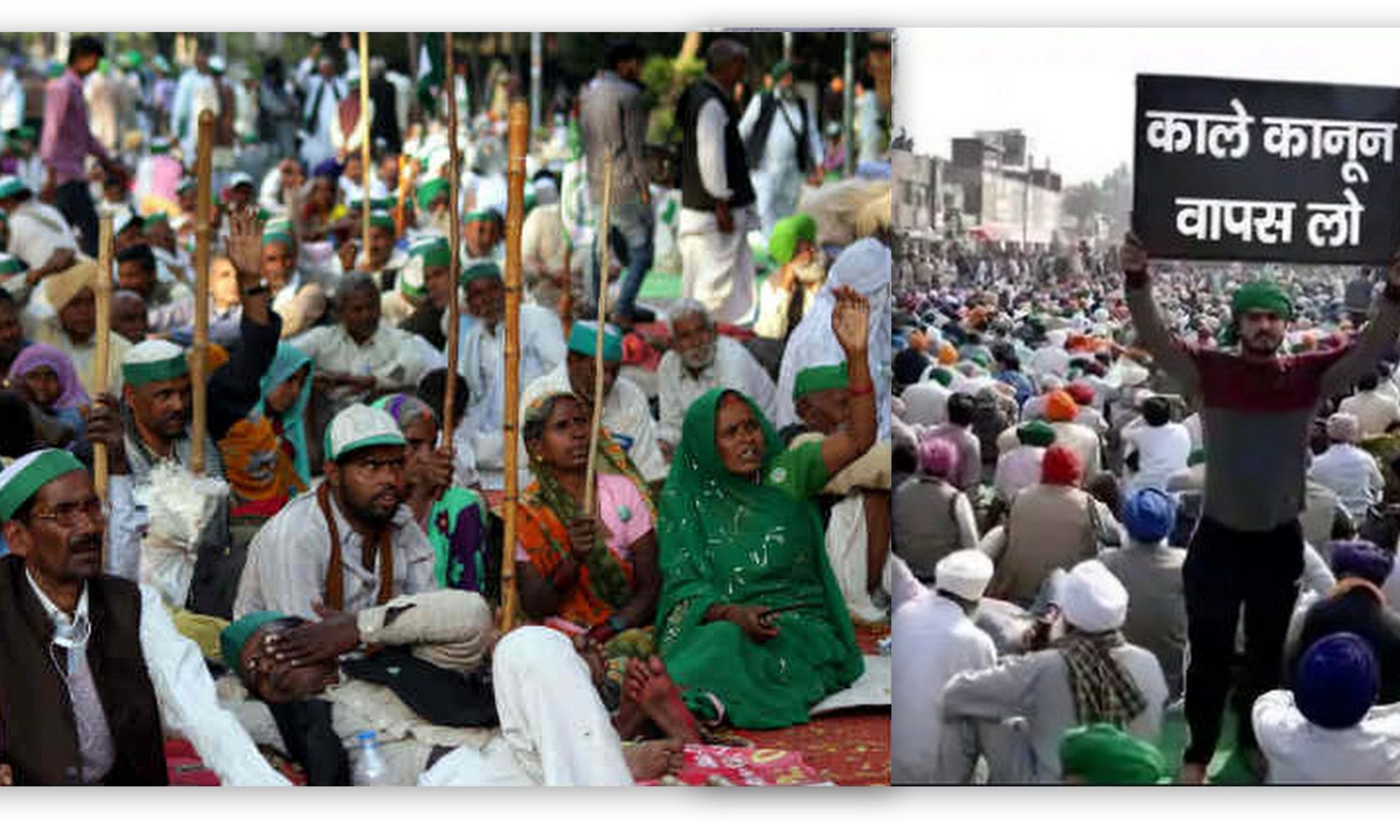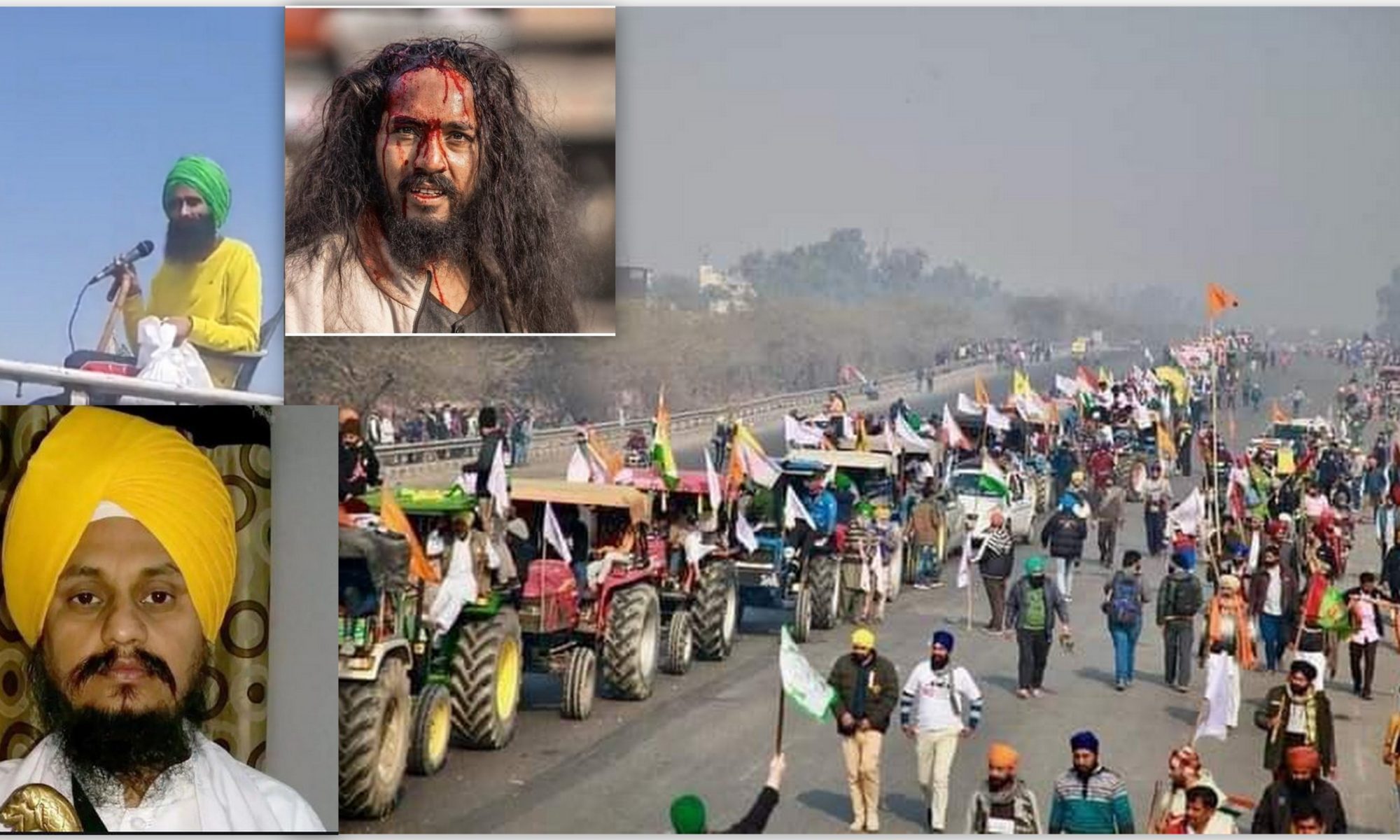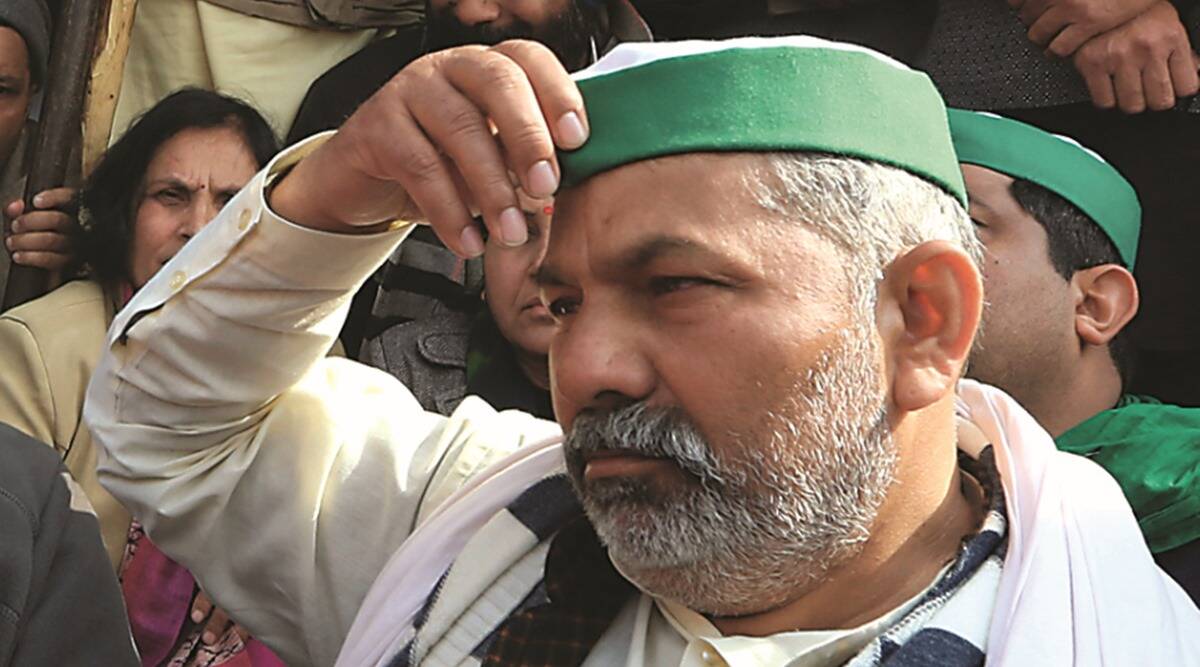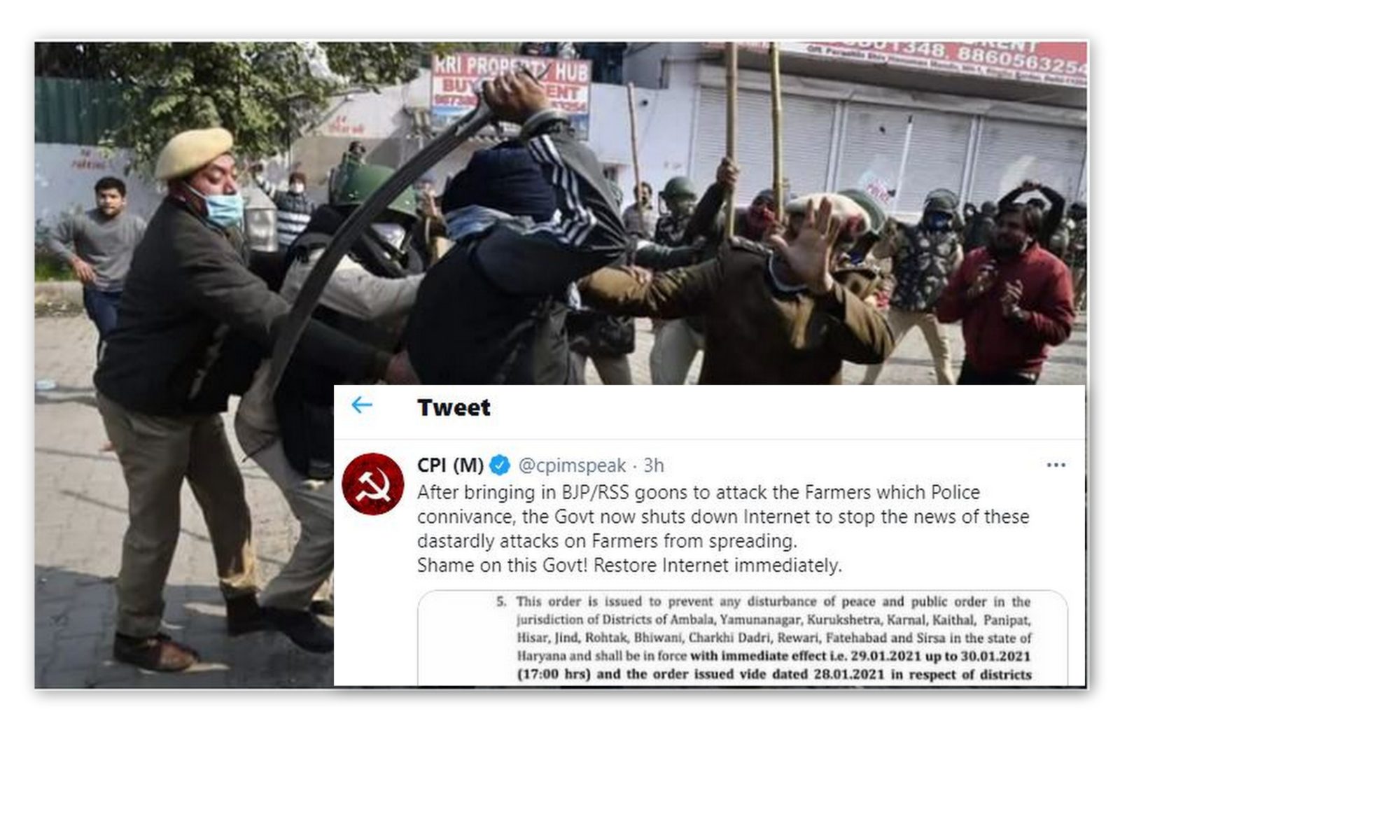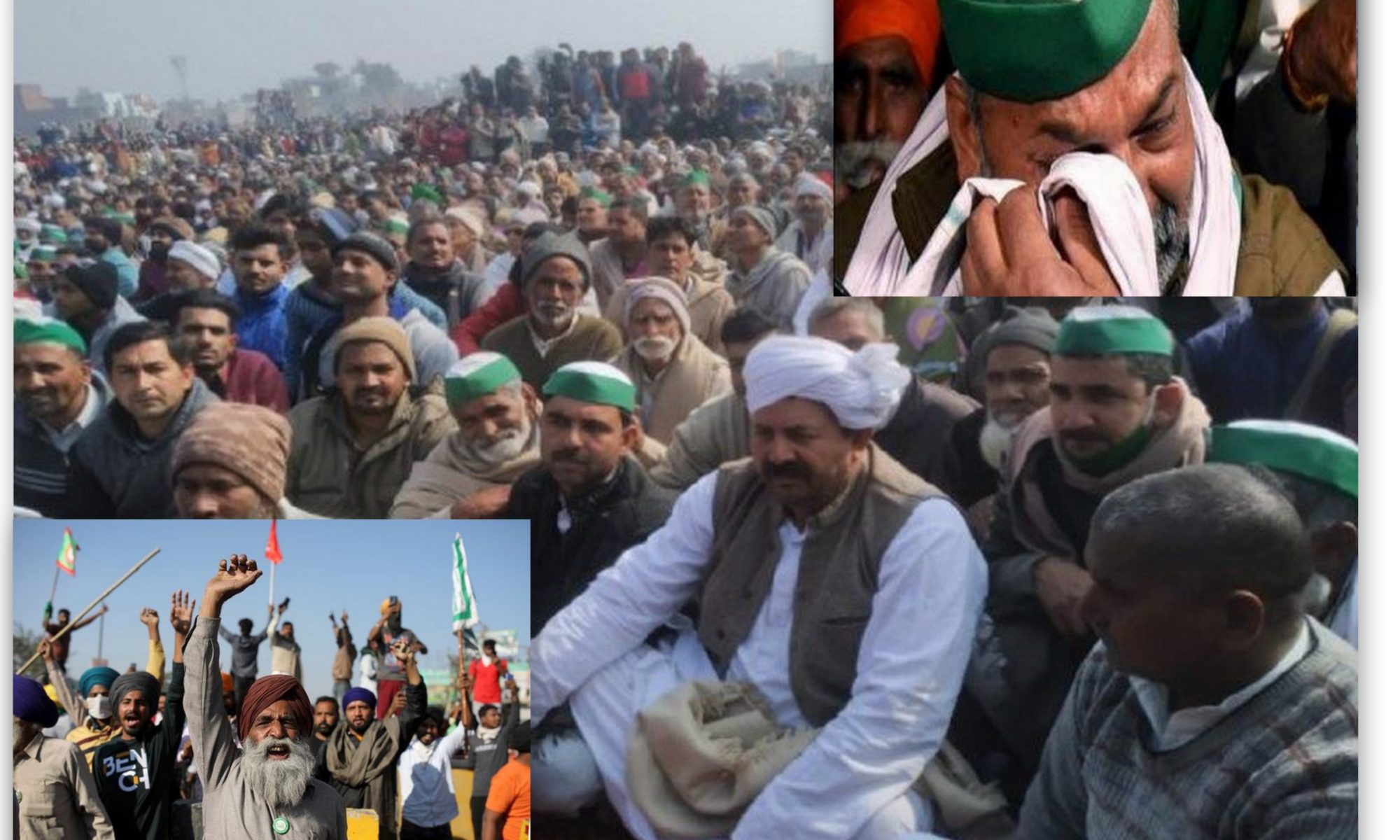The farmers’ protests against the three new farm-laws, in the region surrounding Delhi has taken India by storm, & gradually turning increasing number of eyes from around the world, with many international figures and politicians now taking to social media to express their concerns. Even James Manuel Costa, the U.S. Representative for California’s 16th congressional district, has recently stated in a tweet that the events unfolding in India is troubling. He also added that as a member of the Foreign Affairs Committee, he is closely monitoring the situation as the right to peaceful protest must always be respected. Canadian PM Justin Trudeau and some MPs from UK had shown support for the farmers’ protests in the earlier days.
Apart from this, over 400 academicians from across the country and several universities abroad have recently urged the Central government to immediately repeal the three new farm-laws which they said “pose a major threat to farming communities all over India”.
When the government led by BJP passed the three farm laws in September last year, the scale and magnitude of the long-running protest would have been the last thing that they might have even remotely imagined. The three farm-laws that are at the centre of the farmers’ protests are the Farmers produce trade and commerce (promotion and facilitation) Act, Farmers (empowerment and protection) agreement on price assurance and farm services ordinance, and, the Essential commodities amendment act.
GOI has taken to setting up concrete barricades, barbed wires, planting spikes, and digging the roads with JCB machines near the major protest sites, showing the discomfort & fear the protests have put the government in.
The farmers and various experts suspect that the laws would dismantle the mandi system and the MSP system of price assurance to the farmers.
Problematic features in the three farm-laws
The laws have included almost all the crops grown by Indian farmers. For these crops, the companies or individuals in Agro-marketing and distribution, irrespective of whether they are large or small will be able to lay down contracts with the farmers for the sale of the crops. The agreements which will be enunciated in the contracts will fix the time period during which the produce of the farmers will be purchased. The first point of concern in the farm bills is that instead of keeping a minimum support price for any crop, there will be a least price in which the crops or rather the worst quality of the crop can be purchased in the market. Hence the minimum support price will become the minimum selling price. This means that even if the crop produce will be of high quality (which has another rider in the new bills) then the MSP will be the highest selling price. This will inherently destroy the price support offered by the government to the farmers.
The quality of the crops will be defined with three terms stated in the bills-quality, grade, and standard. These three factors will be decided by the officials appointed by the government. This group of officials with the authority to give certificates on the grade, quality and standard will then be susceptible to palm greasing by the corporations who can get certificate showing lower quality for a genuinely good quality crop. The corporations will do this to reduce the crops’ selling prices nearer to the least selling price, decreasing their cost of purchase.
There is another position defined in the bills called as the mediator who is supposed to bring manures, fertilizers and other related things to the farmers. A grave issue will arise here keeping in mind the profit seeking tendency. The mediator can charge the farmer for high priced fertilizers which will be decided prior to planting of the crops, and can bring the farmers low quality materials.
The bills will also entail Essential commodity act to be functionally inapplicable which can and will give rise to rampant hoarding and stockpiling of the produce. The food price will skyrocket fatally puncturing the food security of large chunk of population.
Another problematic issue in the bills is that the agreements between the farmers and the corporations can be terminated anytime. This will give chances to the corporations to terminate the agreements and force the farmers, who have nowhere to go, to sell the produce at extremely low rates (even lower than the least selling price).
The above provisions will definitely give rise to litigation issues and disputes which some farmers will take to authorities. The bills speak of a specific category of boards which will decide on such disputes. Such boards can be easily influenced by the big corporations.
All of the above leave actually no room for dispute solution for the farmers, with high probability of hoarding of crop produce and sky high prices of food-grains for the public. With the increased probability of hoarding due to the removal of some of the staple food crops from the essential commodities list, and sky-high prices of the food-grains in the market due to the subtle leeway provided to the big corporations in the laws, it can be said that the hunger would become a prominent and common issue in India wiping out the bottom of the economic pyramid.
Genesis of the protests
Last year on November 26, the protests began when the farmers’ groups from Punjab and Haryana began their march towards the national capital. The day was carefully chosen as it also happens to be the constitution day. It was on November 26 in the year, 1949, that the constituent assembly of newly independent India had adopted the newly drafted constitution. Prior to November, last year, protests were going on but in small fragmented scales across the country.
The farmers’ groups while beginning the rally had asserted that the protests were to protect the rights of the farmers and the constitution. Supports to the farmers from various groups within India and abroad have also got wide acclaim and recognition. One such group is the Khalsa Aid that has been providing support for the protesting farmers.
Recently, the group has been nominated for Nobel peace prize which has sent the government into further discomfort.
Last year on December 8, the farmers and various groups supporting their cause had called for a nationwide general strike. The call had found voice of support from the trade unions in protest against the central government’s economic policies, specifically the three farm laws.
Trade unions such as the INTUC-Indian National Trade Union Congress, AITUC-All India Trade Union Congress, HMS-Hind Mazdoor Sabha, CITU-Centre of Indian Trade Unions, AIUTUC-All India United Trade Union Centre, TUCC-Trade Union Co-ordination Centre, and SEWA-Self-Employed Women’s Association had joined the strike.
Unions involved in the protests
There are many farmer-unions participating in the protests around the capital. The number of farmer-unions across the country providing support to the protests has been estimated at above 500. Some farmer-unions are leading from the front on the roads around the national capital.
They include- Bharatiya Kisan Union which is an amalgam of the groups: Ugrahan, Sidhupur, Rajewal, Chaduni, & Dakaunda. The other unions in the protests are
Kisan Swaraj sangathan, Jai Kisan Andolan, All India Kisan Sabha, Karnataka Rajya Raitha Sangha, National Alliance for People’s Movements, Lok Sangharsh Morcha, All India Kisan Khet Majdoor Sangathan, Kissan Mazdoor Sangharsh Committee, Rashtriya Kisan Majdoor Sangathan, All India Kisan Mazdoor Sabha, Krantikari Kisan Union, ASHA-Kisan Swaraj, Lok Sangharsh Morcha, All India Kisan Mahasabha, Punjab Kisan Union, Swabhimani Shetkari Sanghatana, Sangtin Kisan Mazdoor Sanghatan,Jamhoori Kisan Sabha, Kisan Sangharsh Samiti, & Terai Kisan Sabha. The farmers have recently rejected the Centre’s new proposal of putting the three new farm laws on hold for 18 months.
In the early weeks of December, the meeting of 13 members of Sanyukt Kisan Morcha with Union Home Minister Amit Shah had created a rumour and confusion over division among the farmer-unions. The rumours were later dismissed by the farmer-leaders together.
Not only Delhi, but the protests are also taking place all over India. Farmers united for Republic Day through vehicle rallies in many places in Karnataka. Farmers’ tractor marches are taking place in Kerala, & Maharashtra as well.
Farmers of Bilaspur and Rampur in Uttarakhand had prepared for the farmers’ parade in Delhi by organizing tractor march. Farmers in Chhattisgarh had planned for a march towards the Raj Bhavan on January 23 and a group of farmers also planned to leave for Delhi.
The Kisan Delhi Chalo Yatra of Navnirman Kisan Sangathan, which was started from Odisha, was being disturbed repeatedly by the Uttar Pradesh Police. Instructions were being given to change their route. A three-day big protest in Kolkata was planned from January 20 to January 22.
After the Republic Day fracas created by some people, who were attempting to taint the protests, the movement took a surge after an emotional note added by Rakesh Tikait, when he stated that either the laws would be repealed, or he would take his own life, but he would not move from protest. The centre received criticisms from various quarters regarding the chaos created on Republic Day. Participation of people like Deep Sidhu, who had campaigned for BJP MP, Sunny Deol, and others like Aman Dabas and Krishnan Dabas with connections in BJP, highlights the attempts to malign the movement of the farmers.
Connection with Charan Singh
One of the prominent and leading unions in the ongoing protests by the farmers is the Bharatiya Kisan union. It was founded by the fifth prime minister of India, Chaudhary Charan Singh, from the Punjab Khetibari Union also known as Punjab Farming Union, which became its Punjab branch.
Charan Singh had brought the farmers into the functional political structure of India. He considered that the true India resides in its villages. He cared and worked for rural people throughout his life. He was a farmer in thought and deed. He was essentially the first ‘kisan‘prime minister. He had played a pivotal role in re-organizing the political economy of agriculture in Uttar Pradesh by drafting and enacting different bills for agricultural reforms before and after Independence.
In 1939, Charan Singh had introduced the Debt Redemption Bill in order to give relief to the peasantry from moneylenders. Born in a village in a farmer family, Charan Singh had seen the plights of farmers and the ways in which money lenders exploited them.
Like merchant’s capital, it bears more heavily on the poor farmers than on rich ones. The issue of farm-debt is significant for middle and small farmers. The Debt Redemption Bill was one of the significant steps in making the farmers’ life better.
In April, 1939 Charan Singh had drafted the Land utilization bill whose aim was to transfer the proprietary interest in agricultural holdings of UP to such tenants or actual tillers of the soil. The condition for such tillers or farmers was to deposit an amount equivalent to ten times the annual rent in the government treasury to the account of the landlord.
In June of 1939, Charan Singh had published a newspaper article which had discussed the blueprint of the Land reform that should be pursued after independence.
Those reforms targeted to abolish the idea of landlords in UP. By 1945, Charan Singh had prepared a draft on land reform as part of Congress manifesto, which was approved by the All India congress committee in the Calcutta session held in December that year.
By that time, he had started preparing himself politically and ideologically as the kisan champion. On July 11, 1952, as agriculture minister, he led Uttar Pradesh in abolishing the zamindari system.
He had himself drafted the UP Zamindari and Land Reforms Bill. The aim was to strike a moral blow at the landlord class. However, it was not easy to get it through legislation since the landlord class opposed it and put all efforts to ensure its delay.
Being a lawyer and a successful politician, Charan Singh bided his time and saw the legislation through to a successful conclusion in terms of enactment. It was a landmark achievement in the peasant history of India. This changed the life and actions of small and middle farmers and produced a class of rich farmers in western UP and in other parts of India.
These steps taken by Charan Singh have a bearing on the ongoing protests around Delhi. The current central government under BJP has tried various means to stave off the protests, but to no avail.
It has been alleged by various observers that the BJP-government had drafted the bills, keeping in mind exclusively the benefits of its cronies. This is not surprising given the fact that the debt of the Food Corporation of India has gone up from around 91400 crore Rupees, in 2014 to 2.65 lakh crore Rupees in 2019 under Modi’s tenure.
FCI can certainly not rely on the banks, which have their own TBS problems, and issues created by defaulters & criminals like Mallya. Some details actually point out the intentions of the government which has its own favourite corporate houses.
Adani group has constructed a silo with a capacity of 200,000 metric tons in the Moga district of Punjab, which is currently providing a food storage facility to the Food Corporation of India (FCI). Lining up another high capacity silo, the Adani group has purchased land in Faridkot district to construct and develop a high volume storage facility there.
These details and the indifference of the BJP-led government to the farmers have attracted international attention. The UN Chairperson Antonio Guterres has shown his support for the farmers.
It has also been reported that there is a strong possibility of upcoming US sanctions on the two corporate houses of Ambani and Adani in India.
The Magnitsky Act of 2012 passed under Obama would probably be used by Biden administration to place the sanctions. This may result in Ambani and Adani groups facing Economic and Financial sanctions from US, resulting in freezing of the assets of the corporations, and their money in foreign banks, locking out the access.
Also Read: Biden administration may place Ambani & Adani under sanctions guided by Magnitsky Act of 2012
When the water cannon and digging of the trenches failed to demoralize the farmers, the government resorted to talks. But, multiple rounds of talks have already failed. To the embarrassment of the government, the farmers have been bringing their own food and refusing to take the lunch provided by the government during the talks. Farmer-Leaders like Rakesh Tikait have clearly stated that the protests would not stop until the three laws are repealed, with a chakka jam being planned on February 06.
Farmers have gathered from states like Tamil Nadu, Maharashtra, Uttarakhand, Madhya Pradesh, Haryana, & UP at the various protest sites. Various organizations handling the marketing of farm produce in states like Madhya Pradesh have also provided their support to the protests given the fallen sentiments in the market.
There is also presence of a special cyber team at the protest site to prevent the misinformation being circulated over the Social media. The impact of the protest is such that Facebook was forced to reverse its ban on the page of Kisan Ekta morcha, which live-streams the developments in the protests. Leaders in the protests have stated that they will not move until the laws are repealed and that they are ready to hold their ground till May 2024.
Among the protest sites, Singhu, Tikri, and Ghazipur have become really powerful places of the protests essentially tilting the balance of power away from the parliament, challenging the status quo, in an unprecedented manner in Indian history.
The protests have demonstrated the power in the mind and souls of the protesters, who have braved rains, water cannons, and winter nights assembled at the sites. This shows that the farmers’ protests have not only grown to be the largest & most resilient protest in human history, but have also become an important inflection point in the political history of the subcontinent.


